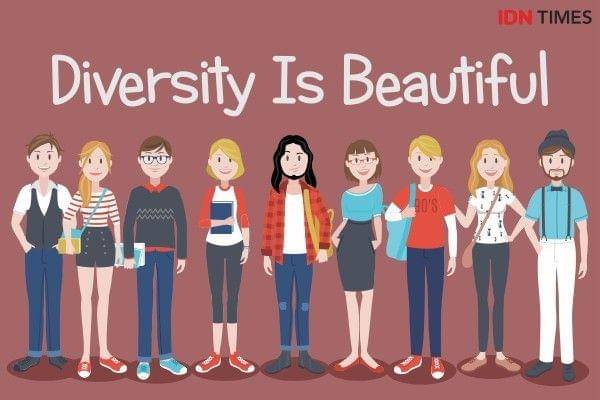Millennials valued thought tolerance more than other types of tolerance and the idea of respecting others were familiar for them in defining tolerance. Their understanding of tolerance will surely influence the way they interact with people. So, here are some tips and tricks in dealing with millennials and their ‘tolerant’ perspective:
Millennial as a friend: What really matters for millennials is the way you see things. Although what you believe and value might be different from them, millennials will most likely still care about your opinions and thoughts. This might happen because millennials are most likely always want to provide input and be heard, so they do the same thing to their friends.
So, if you want to make new friends with millennials, be brave to speak your mind, don’t be intimidated by their opinions, yet always be an active listener. Drop those talks about social status sh*ts, because based on our survey, social tolerance was being in the second position of millennials’ definition about tolerance. Thus, who you are don’t really matter, but how you see things is highly important for them.
Millennial as a family member: Be an authoritative parent or family member. Out of 4 types of parenting, the authoritative parenting is the most suitable one for millennials, although it might be extremely dependent and influenced by the personality of each individual. In authoritative parenting, the parents have rules and they use consequences, but they also take their children’s opinions into account.
As millennials are high-valuing thought differences, they will more likely listen to their parents’ reasons behind each rule and they will obey based on their own reasons. What really matters is millennials want to be heard, so a two-way street discussion will work out best for them if we want to talk about who’s doing the laundry or maybe the dishes.
Millennial as an employee/worker: As millennials don’t really care about racial, religion, and social status differences, then millennials are actually one of the most suitable generations in creating an inclusion workplace. Other than they are highly tolerance towards personal backgrounds, the way they are valuing thought differences will more likely beneficial for a workplace as well.
If you have millennials as your colleagues and/or subordinates, then be democratically fair towards their job descriptions, promotions, and their Key Performance Indicators. Cultivate an open communication environment where they will feel secure in stating their opinions and thoughts. Again, millennials are not feeling entitled, but they just want to be heard and they are mostly open with receiving different opinions about many things.
Millennial as a romantic partner: Silent treatment will be the worst way of dealing with your millennial partner when conflicts arise. Again, millennials are valuing differences, so, take that as an opportunity for you to develop a healthy communication pattern towards your partner by being an active listener and an open-minded discussion partner.
Don’t give negative stereotypes about culture, ethnicity, religion, or any differences in your first date with a millennial. Stay positive. Be positive. As cliche as it sounds, a millennial is basically a regular human being who prefers to hear good things rather than the bad ones. Their tolerant attitude and your positivity are such an opportunity to create positive impression in their eyes.
Being tolerant is actually a skill which has to be developed within everybody, not only for millennials. As cliche as it sounds, diversity is always beautiful. If we’re not the one who cultivates a tolerant attitude, then who else?
By Rayi Noormega
